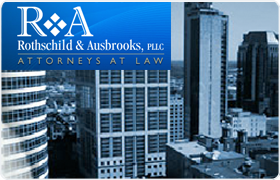Old Hickory Workout Lawyer, Tennessee
Sponsored Law Firm
-
 x
x

Click For More Info:
-
Rothschild & Ausbrooks, PLLC
1222 16th Ave. South, Suite 12 Nashville, TN 37212» view mapBankruptcy Filing, Chapter 7, Chapter 13 You Are Not Alone. We Can Help.
Our law firm encourages communication. We respond to calls and e-mails promptly. This is your case, and you will be involved every step of the way.
800-966-8531
Not enough matches for Old Hickory Workout lawyer.
Below are all Old Hickory Bankruptcy & Debt lawyers.
Mary Beth Ausbrooks
✓ VERIFIEDBankruptcy & Debt, Consumer Bankruptcy
Board Certified Specialist in Consumer Bankruptcy
For more than three decades, the bankruptcy attorneys at Rothschild & Ausbrooks, PLLC, in Nashville, Tennessee, have been devoted to helping individua... (more)
Richard E Baranyi
Child Custody, Divorce & Family Law, Bankruptcy & Debt, Accident & Injury
Status: In Good Standing

 Mary Ausbrooks Nashville, TN
Mary Ausbrooks Nashville, TN Contact UsCall or Email
Contact UsCall or Email LinkedIn
LinkedIn
